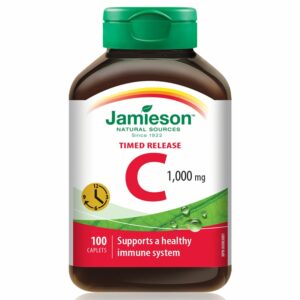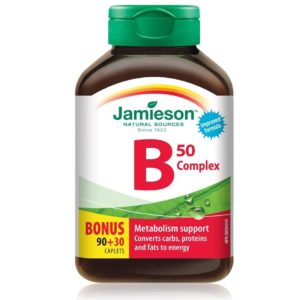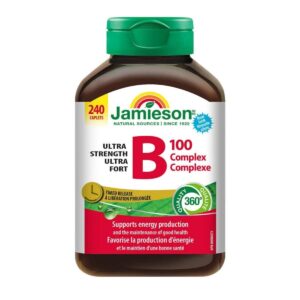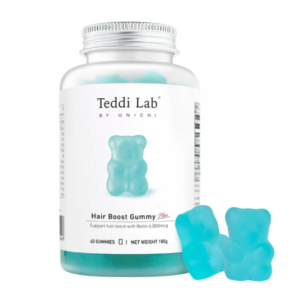
About 8 Unique Vitamin B's
Vitamin BIt refers to the 8 known essential water-soluble vitamins, namely thiamin (Vitamin B1), riboflavin (Vitamin B2), niacin (Vitamin B3), pantothenic acid (Vitamin B5), pyridoxine (Vitamin B6), biotin (Vitamin B7), folic acid (Vitamin B9), and cobaltocobalamin (Vitamin B12). Just like other vitamins, Vitamin B complex helps us to stay healthy and keep our body functioning properly. Vitamin B's work in various parts of our body. For example, they are essential for the production of new cells in the body, help regulate the nervous system and digestive system, and promote the production of red blood cells. Vitamin B is also known to boost energy. These important nutrients help the body convert food into energy, which keeps us energised throughout the day. Vitamin B is important for athletes and bodybuilders who need energy from a carbohydrate diet.
There are many more benefits of Vitamin B complexes, and scientists have noted their anti-ageing effects, as they can have a cosmetic effect by combating damage caused by free radicals (which can cause disease), as well as promoting hair growth, soft skin and strong nails. We know from the previous article how important vitamin B complex is to our daily diet, and this article focuses on the role, food sources and dosage of these 8 essential B vitamins. Each vitamin is followed by important tips on how to safely and effectively supplement with that particular vitamin.
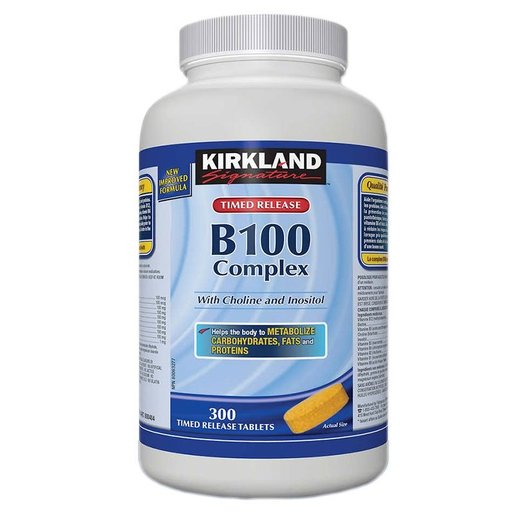
Vitamin B1 (Thiamine)
Vitamin B1, also known as thiamin, is primarily responsible for converting carbohydrates into energy. Thiamine also has other functions, such as helping the body to produce new healthy cells and protecting the brain.
Benefits of Vitamin B1 (Thiamine):
- Increase energy levels in the body;
- Protects the immune system;
- Helps in cell production and metabolism;
- Improves brain, muscle and nervous system health.
Food sources of vitamin B1 (thiamine):
Foods rich in vitamin B1 include whole grains, milk, bread and cereals. They also include peanuts, spinach, collard greens, black beans, trout, mussels and tuna.
Tip: Alcoholics are likely to suffer from vitamin B1 deficiency. It is recommended to take 0.8-1mg daily.
Vitamin B2 (Riboflavin)
Vitamin B2, also known as riboflavin, has potent antioxidant properties that help fight free radicals, a type of particle that damages cells in the body. Because of its antioxidant properties, studies have shown that this vitamin may prevent premature aging and maintain heart health. Riboflavin is good for eye health and can be combined with other B vitamins to convert food into energy.
Vitamin B2 (riboflavin) benefits:
- Helps in the production and growth of blood red cells;
- Helps protect your eyesight;
- Vitamin B2 helps fight headaches;
- Has many antioxidants;
- Prevents signs of aging;
- Helps maintain a healthy heart.
Food source of vitamin B2 (riboflavin):
Riboflavin is found naturally in eggs, meat, milk and green vegetables, as well as in fortified cereals and rich whole grain products. The vitamin is also found in dark green vegetables, spinach, baby cabbages, beans, almonds, wild rice and yoghurt.
Tip: Be aware that UV light can reduce the amount of riboflavin in foods. For example, when you buy milk, make sure it comes in an opaque container (which protects the vitamin from harmful rays). A daily supplement of 1.1-1.3mg of vitamin B2 can help your body produce energy, protect your vision and maintain healthy skin.
Vitamin B3 (nicotinic acid)
Vitamin B3, also known as nicotinic acid, can cause digestive problems (such as nausea and stomach cramps) if the body is deficient in nicotinic acid. Vitamin B3 aids digestion and improves appetite, and helps the body convert food into energy.
Benefits of Vitamin B3 (Niacin):
- Aids digestion and improves appetite;
- Important for neurological effects;
- Can be used externally to promote healthy skin;
- Converts food into energy.
Food source of vitamin B3 (niacin):
Foods rich in niacin include eggs, fish, lean meats, poultry, dairy products, rice, fortified cereals, yeast, red meat, milk, beans and green vegetables, and fortified bread.
Tip: Health experts recommend that men should take 16mg of niacin daily, while women should simply take a 14mg daily supplement.
Vitamin B5 (pantothenic acid)
Vitamin B5/Pantothenic Acid is a supplement in the B complex of vitamins that helps the body use other vitamins such as riboflavin. Vitamin B5 has a wide range of roles, converting nutrients from food into energy and maintaining healthy blood vessels. Some studies have shown that B5 can reduce the signs of aging in the skin.
Benefits of Vitamin B5 (pantothenic acid):
- Helps break down fats and carbohydrates into energy;
- Helps in the formation of new cells;
- It may help to stabilise blood glucose levels;
- It may help to stabilise the blood pressure level;
- Maintains heart health.
Food sources of vitamin B5 (pantothenic acid):
Pantothenic acid is found in milk, vegetables, beef, poultry, avocado, yoghurt, whole grains (brown rice, oats), eggs, meat and legumes.
Tip: Experts recommend that adults should take 5mg of pantothenic acid daily.
Vitamin B6 (pyridoxine)
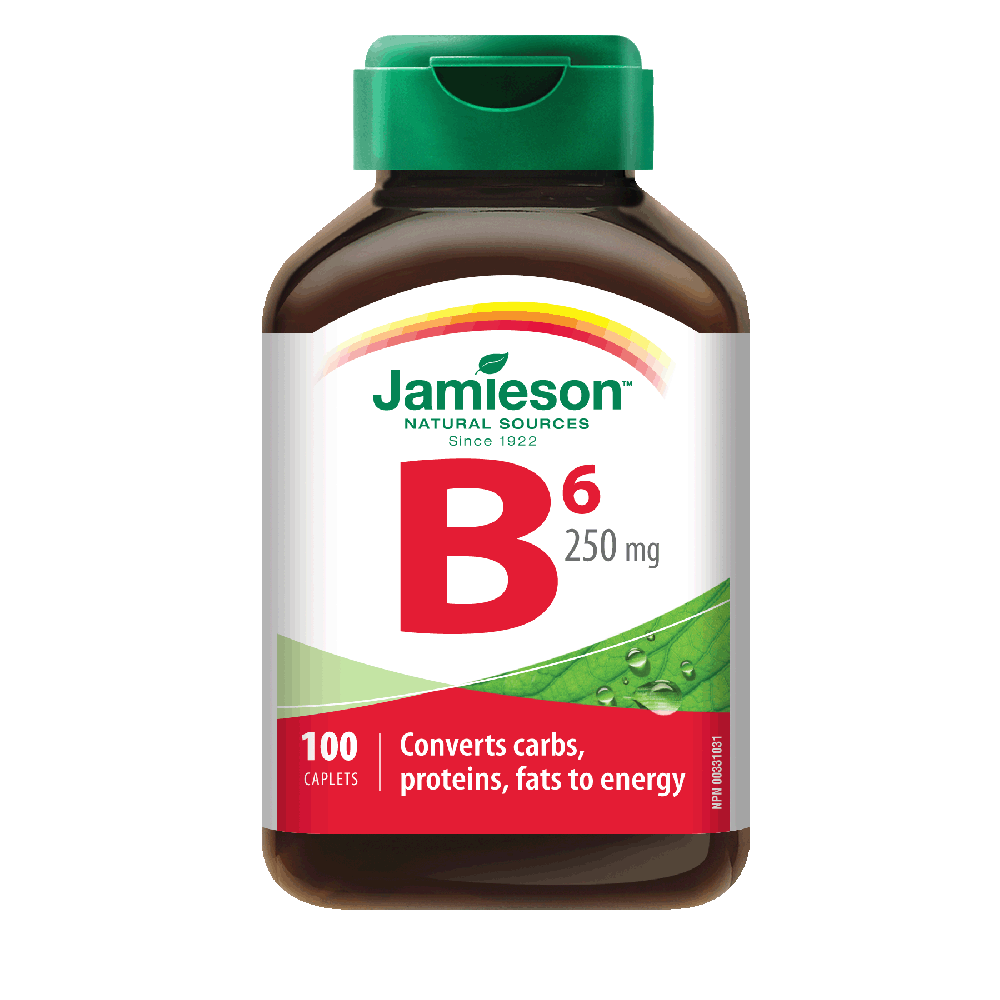
Vitamin B6, also known as pyridoxine, is involved in more than 100 enzyme reactions in the body, which means that pyridoxine contributes to the process of cellular metabolism in the body. In other words, pyridoxine helps in the process of cellular metabolism in the body, which in turn improves our mood and sleep patterns. Vitamin B6 supports healthy brain development during pregnancy and infancy.
Benefits of Vitamin B6 (Pyridoxine):
- Helps sleep and reduces stress;
- Regulates amino acid levels and protects the heart;
- Convert food into energy;
- Promotes brain health in children;
- Reduce joint discomfort.
Food sources of vitamin B6 (pyridoxine):
Vitamin B6 is found mainly in vegetables (e.g. potatoes), poultry, fish, meat and fortified cereals, but lentils, sunflower seeds, cheese, brown rice and carrots are also rich in vitamin B6.
Tip: Adults under the age of 50 are recommended to take 1.3mg of Vitamin B6 daily; men over the age of 50 should take 1.7mg and women over the age of 50 should take 1.5mg.
Vitamin B7 (Biotin)
Vitamin B7 (biotin) is also known as the “beauty vitamin” because it promotes healthy hair and nail growth and improves skin health. This vitamin is essential for the normal growth of babies and young children, so it is essential for pregnant women. Vitamin B7 also stimulates a number of metabolic processes in the body, including the conversion of food into energy or helping to stabilise our blood sugar levels.
Benefits of Vitamin B7 (Biotin):
- It breaks down and converts fats, carbohydrates and amino acids in the body;
- It may help to stabilise our blood sugar levels;
- Promotes growth of hair, skin and nails.
Food sources of vitamin B7 (biotin):
Foods rich in vitamin B7 include beef, egg yolk, wheat germ, sunflower seeds, sweet potatoes, almonds, sardines, spinach and broccoli. Other sources include liver, yeast, chicken, fish and potatoes.
Tips: Adults are advised to take 30mcg of Biotin daily, breastfeeding mothers can increase the dose to 35mcg daily.
Vitamin B9 (folic acid)
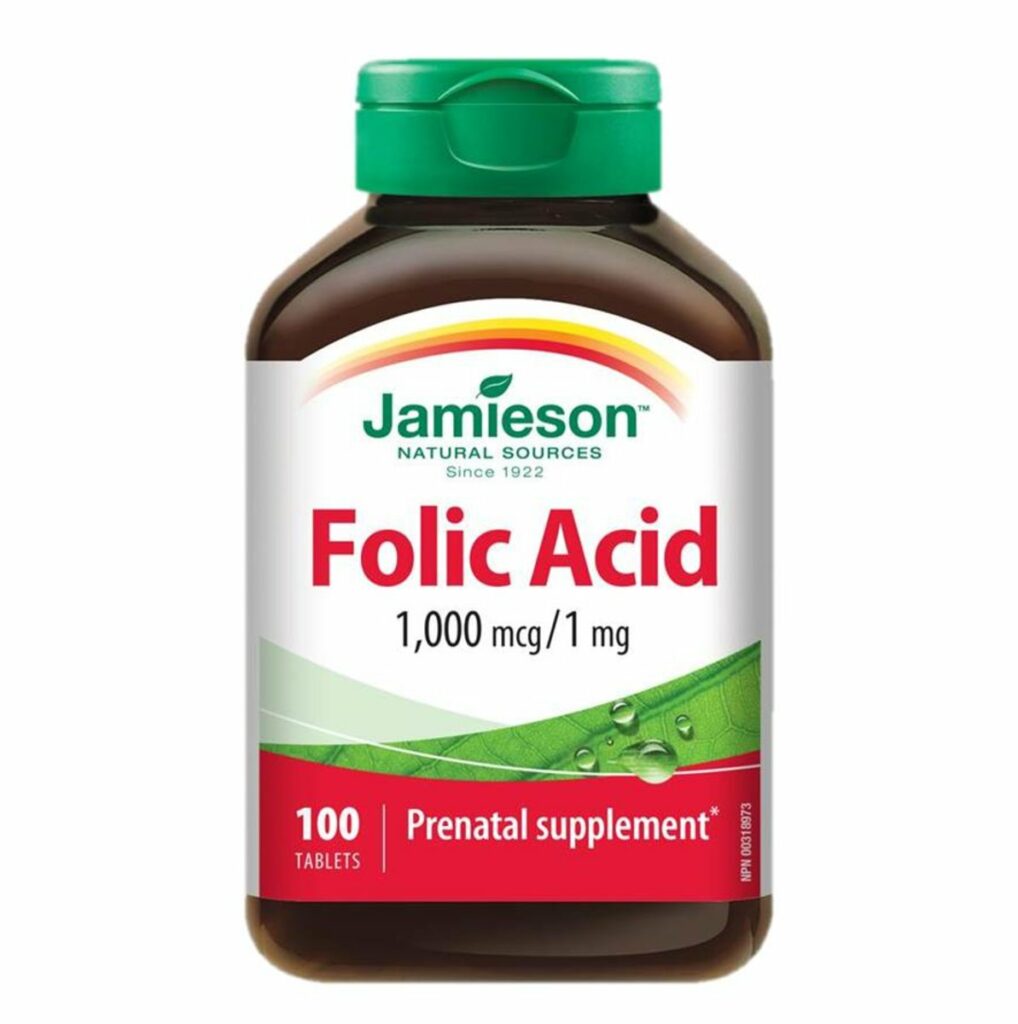
Folic acid is more widely known than other B vitamins because it is often added as a supplement to fortified foods such as cereals and breads. Folic acid promotes the growth of red blood cells in the body and is essential for pregnant women as it helps in the formation of the fetal brain and prevents congenital defects in the foetus.
Benefits of Vitamin B9 (Folic Acid):
- Stimulates the production of blood red cells;
- Prevents memory loss;
- Helps the formation of the fetal brain and prevents congenital defects;
Food source of Vitamin B9 (folic acid):
Foods rich in folic acid include citrus fruits, liver, kidney, fish, fortified cereals and legumes. Folic acid is found naturally in dark leafy greens and other vegetables such as asparagus and broccoli.
Tips: Prolonged cooking destroys folic acid, so make sure your vegetables are cooked over low heat. Adults should take 400mcg of folic acid daily, pregnant women can take 600mcg daily, and breastfeeding mothers should take 500mcg daily.
Vitamin B12 (Cobalamin)
Vitamin B12 is another of the B-complex covitamins that, together with Vitamin B9, promotes the production of red blood cells in the body, as well as supporting cellular metabolism and protecting the nervous system. Since most B12-rich foods are animal products, vegetarians are susceptible to deficiencies in this vitamin.
The role of vitamin B12 (cobalamin):
- Enhanced energy;
- Promotes the production of red blood cells;
- Promotes the proper functioning of iron.
Food source of vitamin B12 (cobalamin):
Vitamin B12 is found in beef liver, fish, poultry, eggs and milk, and some fortified cereals.
Tip: Adults are advised to take 2.4mcg daily.
Conclusion
Each vitamin has a unique role to play in the body. As with other vitamins.Vitamin BThey help the body function properly and are usually found in fruits, vegetables, meat, dairy products, rice, beans, nuts, seeds and fortified whole grain products. Vitamin B complex helps combat stress and boosts energy, but most people don't get enough B vitamins from food alone, so they need supplements to meet their B vitamin needs. Supplement QualityComplex VitaminsSupplements are a quick fix, and most multivitamin products contain Vitamin B complex and other essential vitamins.
Related Post:
Related Products:
-
Jamieson – Long Lasting Vitamin C 1000mg 100 Tablets
Original price was: $138.00.$118.00Current price is: $118.00. Add to basket -
Jamieson – Natural Vitamins B complex 50 120 capsules
Original price was: $168.00.$108.00Current price is: $108.00. Add to basket -
Unichi – Teddi Lab® Gummy Bears Gummy Bears for Hair Growth Upgraded Sea Salt and Green Titanium Flavour 60 Capsules
Original price was: $170.00.$125.00Current price is: $125.00. Add to basket

































































